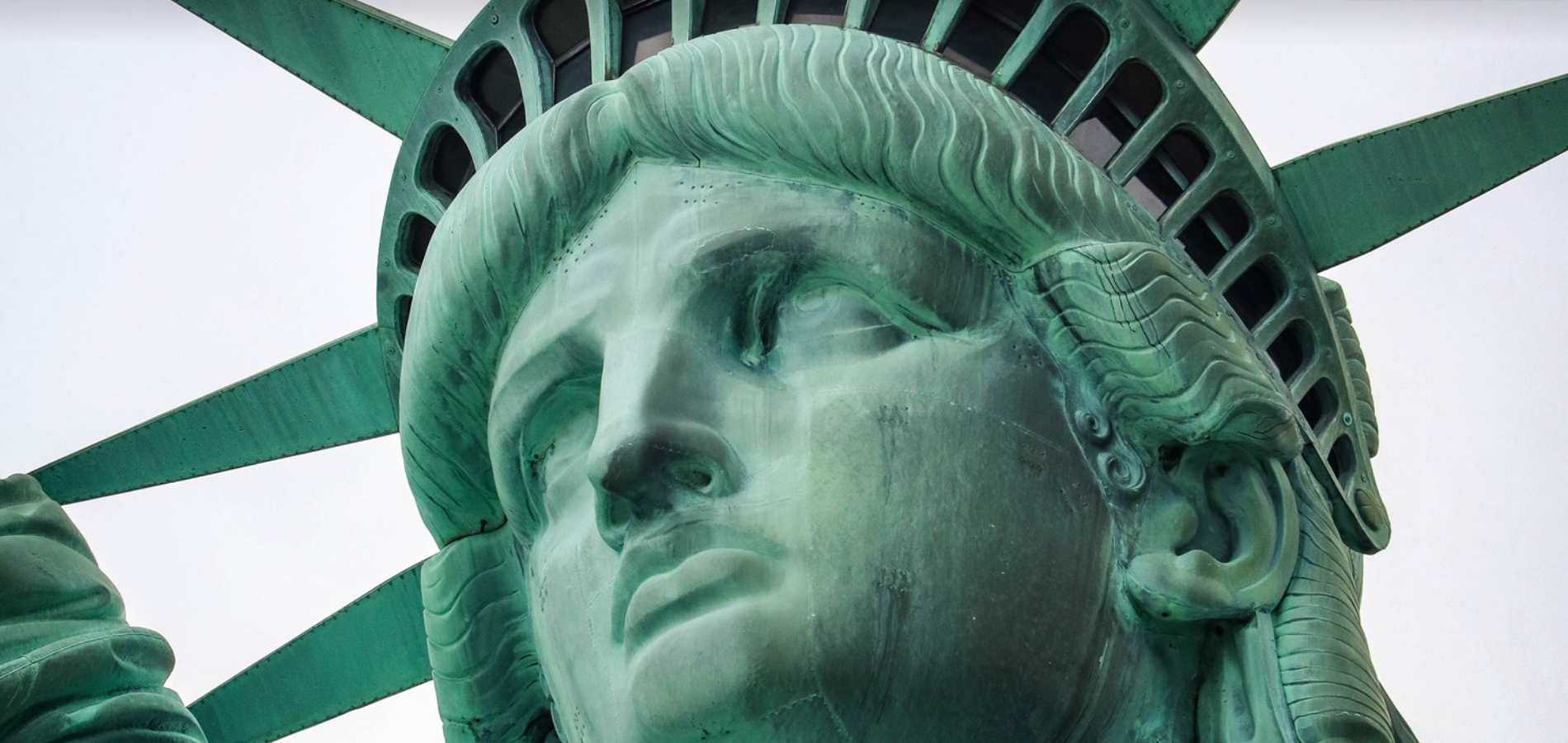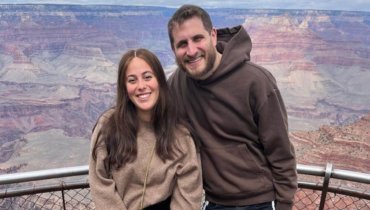This Doc Was Meant To Be About Leaving Observance, But Then She Returned
Zelda Lebovits — a.k.a. @zeldahair on Instagram — became famous for the natural looking wigs she sold that adorned the heads of chic, observant Jewish women. She was a pro at making the mitzvah of hair covering just a little bit easier where women could still feel like themselves. With time, she started peeling back the layers of her own life on the platform and revealed more about her own relationship to Judaism. While she helped orthodox women fulfill this mitzvah with confidence, she struggled with it herself.
Unfortunately, tales of individuals leaving Orthodoxy are not new and garner a lot of media attention that’s usually quite negative. Zelda’s story is unique in that in taking a detour for a bit, she found a beautiful new relationship with Judaism that invigorates her and helps her live her life as a proud observant Jewish woman with joy. While this happens to many as well, it’s a story not often told in public circles.
Luckily, that’s changing slightly. Zelda is a main feature of an upcoming documentary which is about her journey away and then back to Jewish observance. While the doc does not having a guaranteed home yet, major streaming services like Netflix and Prime have expressed interest, according to Zelda.
At first, Zelda’s role in the documentary was to be solely about her career: focusing on how she manufactures and styles her wigs and discussing hair and wigs in America. (Here’s a fun statistic: 1 out of 3 Americans wear wigs or extensions!) However, given that Zelda’s spiritual journey was taking an interesting turn around the time that the documentary filming started, they ended up capturing a lot of it on camera. With nearly five years of footage, the story continuously evolved because Zelda was growing throughout that time.
Zelda’s childhood was based in Crown Heights in Brooklyn, a place she calls the “headquarters” of the Chabad movement. Her parents were Russian refugees at the fall of communism, escaping in the late 1980s via Vienna and Italy. Chabad shluchim were sent across the world by the Rebbe at this time, but particularly to Russia — a “godforsaken” country — where the discussion of religion was forbidden. While Zelda’s parents grew up secular under the communist regime, they learned about Judaism through Chabad, and moved to Crown Heights upon reaching the US. They had been so hungry for spirituality and a connection with G-d that they clung to it strongly. They wanted to raise kids with the holiness and insulation from all the terrible things and antisemitism they experienced, and so chose to raise their children with a love for Judaism through Chabad’s Orthodox system.
While Chabad is known for loving every Jew and the outreach that they do, it made life a little confusing for Zelda. She felt that there was a double standard as she was growing up and came into adulthood. She and her friends were raised to be open-minded and accepting of the communities outside Chabad, whereas they and their families had very different parameters for what was considered acceptable. This is a discrepancy that she tries to tackle today on her platforms today. “If you want to start with outreach, it needs to start at home,” she says.
Because she didn’t feel a spark of her own, her relationship to Judaism became a little lackluster. She did things because it was always what she was taught to do, not because she wanted to do it or felt particularly connected to it. She realized later that she didn’t feel pride as a Jew early on because she never actively chose her own story.
Before she realized the issue, she was eager to mirror what her parents had given her by building a family in line with Orthodox Jewish values. Zelda got engaged to the first person she dated after just three meetings. At first, she truly applied herself to the ideal she was taught and tried to make that marriage work. After a while, though, she came to the painful conclusion that she and her husband were worlds apart. She describes their partnership as very technical, “more like business patterns with our children” than having an intimate friendship or relationship. Taking care of their family was enough to justify her staying for some time, but as Zelda built her wig business, traveled more, and questioned more, she realized she didn’t want to be married to him. While he was an amazing father to their children, their connection just wasn’t there.
At the time she was still very observant — she wore modest clothing and wigs and was still selling them. It wasn’t a desire to be free from religion. “I will be free for myself” was her mantra, and the divorce was part and parcel with that.
Then, after she got divorced, she no longer felt comfortable wearing a wig even though often, observant women still do in those situations. Because of the nature of her work and public-facing business, she realized that she needed to share this with her audience. This confession was difficult not only because of the stigma of removing a wig, but because making wigs was Zelda’s livelihood and she was the face of her business. Ultimately she was very open with her followers and clients about it, and has continued her transparency in the matter. Zelda doesn’t think that this shift in herself affected her business due to that transparency.
With that post came a release in Zelda where she gave herself permission to question the foundation of her faith and re-explore it on her own terms. She realized from birth, she was given an enormous amount of knowledge and wisdom but not the choice to act upon it in a way that felt personal to her. While many naturally connect to what they’re taught when they’re raised Orthodox, Zelda needed to re-find a connection for herself in her own way.
Allison and Zelda both make a point to emphasize that creating an environment where questions are invited is integral to healthy parenting and family dynamics. The alternative, Allison explains, is that kids will either come to the conclusion that answers don’t exist or that questions are bad. Instead, it’s important to give praise for asking questions and tell children that it’s okay to say what’s on their minds. Kids also need to be told that they are loved no matter what — that the love is unconditional and not dependent on the grades they get or the mitzvot they do.
Parents want the best for their children and sometimes it’s hard to let them explore when that parent so surely feels that their way is right. Sometimes they want to protect their children so badly that they don’t leave room for mistakes. “The process of learning to walk is falling,” Zelda says. Zelda has also learned that sometimes becoming a little more hands-off can create a more secure child. She explains that sometimes pressing hard on the gas won’t make the car go, because what it actually needs is a release of pressure. Releasing the pressure isn’t healthy when it’s limitless and being completely hands-off with a child, but doing so slightly says to the child, “I trust you” rather than judging them and looking down on them.
As she reflects back on her personal growth, Zelda credits JITC with impacting her journey, although she and Allison only connected a short while ago. Her cousins (who also played a huge role in her journey) had invited her to the JITC All Star Awards a number of years ago. What had caught Zelda’s attention was that Joyce Azria — a designer whom she admired from afar on Instagram — was being honored. Her speech was so inspiring to Zelda, but at the time she was too shy to approach her. Years later though, Joyce actually bought a wig from Zelda and they connected and built a beautiful relationship. Joyce is now a huge part of Zelda’s coming back to religion. When Zelda moved to Florida during Covid — where Joyce lives — Joyce inspired her through her relationship with Shabbat, by sharing wisdom and demonstrating her openhearted kindness. Connecting with non-judgemental people was integral to making her feel welcome with her new, constantly evolving identity.
When My Unorthodox Life first came out, Zelda was only able to get through the first two episodes because the story struck her as being about someone who was angry and resentful while on the trajectory of fame and fortune. While she connected to some of the feelings Julia Haart had, she felt they were expressed in completely the wrong way. She ended up writing a letter to Julia explaining how damaging it can be to put pressure on your children to live the lifestyle you want — something Julia was doing to her son. Julia was trying to steer him away from the observant Jewish lifestyle she left which Zelda felt was completely the wrong path.
Even when she was questioning her own faith, her daughter was still passionate about dressing modestly and Zelda encouraged that. While Zelda remained true to where she was at the time, she never forced her daughter to sacrifice her modesty in order to conform to Zelda’s current manner of dress. “I could have totally broken her by not allowing her to express herself through her own soul,” she says. Her daughter’s relationship with Orthodoxy was the opposite of her own and that is okay.
Zelda continues to feel empowered in her choices, and works hard on her relationship with Judaism both for herself and to be a role model for her children. “When we aren’t in charge of our behavior and actions — when we don’t feel that we truly have the power — then the need for power [is released somewhere else],” she says. “When you really have power, usually you find that you don’t really need to enforce it or scream it from the rooftops because you know and that’s what matters.”
If you found this content meaningful and want to help further our mission through our Keter, Makom, and Tikun branches, please consider becoming a Change Maker today.








2 comments
Sort by
This is an inspiring story but I’m always disappointed when articles seem to imply that to be orthodox, a married, divorced or widow woman must always cover their hair. There are plenty of women, including me, that don’t cover their hair daily but are still orthodox.
Glad you enjoyed it but we didn’t state anywhere that all orthodox women cover their hair. We noted that she helped Orthodox women cover their hair more comfortably. We also said after her divorce, “often, observant women still do in those situations.” Often is not always. Most orthodox women cover their hair and most divorced orthodox women cover their hair. But we said “often” and not “always” because we were trying to convey nuance.